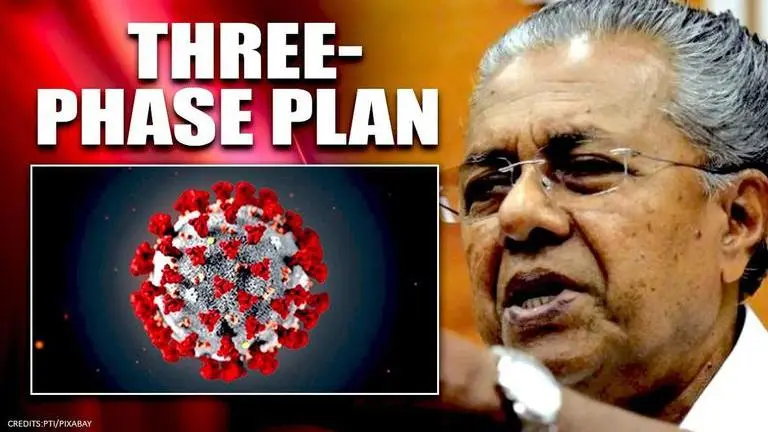Updated 8 April 2020 at 07:09 IST
Kerala Expert Committee suggests 3-phase plan to lift lockdown
The Expert Committee appointed by Kerala CM Pinarayi Vijayan to study COVID-19 lockdown has recommended Centre not to fully withdraw the lockdown on April 14.
- India News
- 4 min read

The Expert Committee appointed by Kerala Chief Minister Pinarayi Vijayan to study the COVID-19 lockdown has recommended the Centre not to fully withdraw the lockdown on April 14, which was imposed to prevent the spread of the novel coronavirus. The 17-member committee in its report has suggested a withdrawal strategy that should be gradual, phased and calibrated to ensure that the caseload is always kept below the (surge) capacity of the healthcare system to deal with it.
"The Expert Committee assessed that the time is not yet ripe for full withdrawal of the lockdown on April 14. The withdrawal strategy should be gradual, phased and calibrated to ensure the case-load is always kept below the surge capacity of the healthcare system to deal with it. The Committee, however, is cognizant that prolonged and stringent lockdown will lead to economic hardship, famine and law, and order issues, which may, in turn, undermine both the lockdown and the health management objectives," the report reads.
The Expert Committee has also recommended the phasing of restrictions for areas outside COVID-19 infection hotspots. It also says that lockdown can be relaxed district wise in three phases. It is sustainable only if there are a steady recovery and decline in the number of cases.
It said that restricting large scale movement of people across international and state boundaries was "critical" and easing it should not be considered unless and until the situation was under control in every state. However, the panel said it also felt that prolonged and stringent lockdown would lead to economic hardship, famine and law and order problems, which could undermine both the lockdown and the health management objectives.
Advertisement
Phase I
According to reports, the first phase would apply from April 15 in districts that find not more than one new COVID-19 case in the week starting April 7, have no more than a 10 per cent increase in the number of persons under home surveillance during the week. Also, gatherings should be limited to five persons, with no religious congregations and visits to places of worship allowed, the report said. However, weddings and funerals may be attended up to 10 persons each, it said.
Advertisement
The district should also have no hotspots during the period. Individuals older than 65 years with a history of conditions such as hypertension and diabetes should not be allowed to move outside unless they obtain special passes, the report said, while describing the first phase.
Phase II
The second phase would apply to districts with a maximum of one new case in the preceding fortnight. Buses, auto-rickshaws, and taxis would be allowed with restrictions, according to the report’s proposal. Activities under the Mahatma Gandhi National Rural Employment Guarantee Scheme would be allowed with protocols, and all micro, small and medium enterprises would also reopen in this phase, the report said.
Phase III
The third phase of the withdrawal of the lockdown would apply to districts that have had no new cases in the preceding fortnight and have reported at least a 5% reduction in the number of people in-home quarantine. The report recommended that educational institutes would be allowed to open only to hold examinations, and information technology firms, malls, and stores would be allowed to function with curbs. Religious congregations, large weddings, political meetings or conferences, or cultural gatherings would continue to be prohibited. Non-resident Keralites stranded in other places will be allowed to return, but once they reach Kerala, they will have to undergo tests and be quarantined, the report suggested. People can be allowed to enter Kerala but undergo a 14-day home quarantine, it added.
General measures till June 30
The committee also suggested an odd-even road rationing scheme for private vehicles, with none allowed on Sundays. Air and rail movement into the state would be disallowed in this phase, and state borders would be closed except for emergencies and essential products. The panel also suggested three general measures to be kept in place until June 30 – the mandatory use of face masks for those stepping outside the house, the need for permissions from local bodies for weddings only for 25 or fewer guests, and prohibition of air-conditioning in office spaces, cars, and public transport unless needed for medical reasons, or for safe storage.
(With agencies input)
Published By : Varsha Chavan
Published On: 8 April 2020 at 07:09 IST
